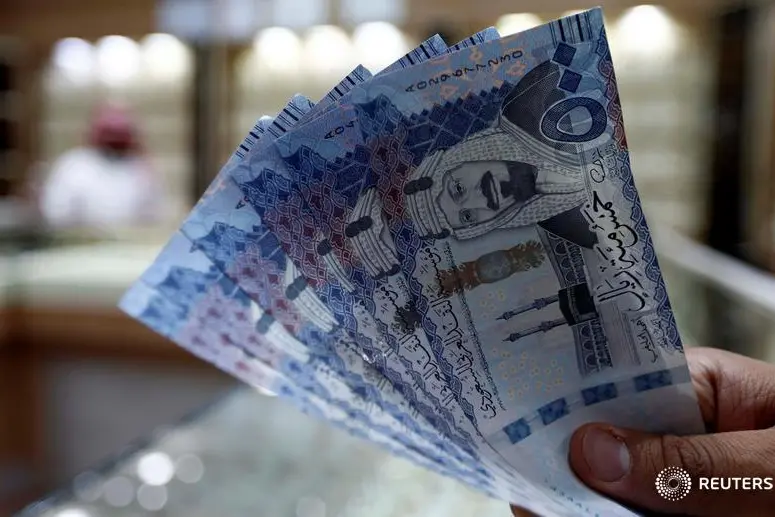PHOTO
Saudi Arabia’s online payments solutions firm HyperPay plans to expand its presence in the Middle East and North Africa (MENA) region, according to its chairman, Abdullah Altamami, who sees minimal competition from global players in this field.
Looking to capitalize on the immense opportunities presented by the Saudi government’s push towards cashless targets, HyperPay is cementing its position in the kingdom while expanding into other territories, he told Zawya.
The kingdom’s aims to raise online or cashless transactions are part of the Vision 2030 economic overhaul plan. The target is to raise the rate of non-cash utilization to 28 per cent in 2020 from 18 per cent in 2016, to eventually reach 70 per cent by 2030. Electronic payments in Saudi Arabia are forecast to double to more $22 billion over the next four years, according to a report by Amazon’s PAYFORT.
“We are already building infrastructure pieces in Saudi, which we believe is the most important market for us, considering how large it is,” he added.
“We will continue to build local infrastructure pieces and localize payment types and payment territories. We are the only ones who are able to provide or use American Express in Saudi Arabia, because AMEX in Saudi Arabia is technically and legally designed for abroad.”
He also noted that HyperPay is the only firm able to process payments for STC Pay, the new wallet from telecom provider STC.
“When it comes to UnionPay, which is dominant in the Far East, Russia and other places, we are the only ones who can provide it in the whole region. We do that because we already saw the increased relations between Saudi and China, and the rise in the number of tourists expected from the Far East, so we expect it to be in high demand,” he said.


Abdullah Altamami, Chairman of Hyperpay. Image supplied by Hyperpay
Saudi Payments Network (Mada), the domestic network for online payments, recorded a 47 per cent rise in completed deals to 688 million in the first half of 2019, at a value of SAR 136 billion ($36 billion), in comparison to the same period last year. Mada payment cards now provide to access to over 16,000 ATMs in Saudi and more than 160,000 point-of-sale terminals in tens of thousands of local retail outlets.
“In HyperPay, about 45 per cent of our online transactions in Saudi are from Mada Online,” Altamami said. “When it comes to the Mada local network, we are the only ones who are connected directly to the local switch. Building such infrastructure is very difficult to replicate and takes a lot of time, money and investment, so we’ll continue to do that.”
MENA expansion
The company has ambitious plans to expand into the entire MENA region. “We will lead the way in localizing top-tier payment services to Saudi and the region, with world-class quality and security,” Altamami said
“We plan to continue to invest in Saudi, primarily and the region,” he continued. “We already have four offices in the region. We have the headquarters in Saudi, and we are present in UAE, Jordan, and in Egypt. We would like to expand that further to cover the region completely and provide local products for local consumers and businesses.”
HyperPay is also operating in Kuwait, Bahrain and Oman, and the firm is looking to expand these activities as well.
Egypt is another promising market for the firm: “We also want to increase our presence in Egypt because it is becoming more cashless. Lately, there has been a move towards a cashless society, so we want to be part of that transition.”
As an investor and an advisor to local entrepreneurs, Altamami encourages budding entrepreneurs to take advantage of the gaps and opportunities present in Saudi fintech sector in particular.
“In Saudi, mobile subscribers are more than 130 per cent (meaning some people have two phones), online penetration at 89 per cent (which is above the world average of 57 per cent), smartphones are at 96 per cent and 74 per cent have bank accounts (most of which are Mada Online enabled or will be soon),” he said.
“Back when HyperPay was first founded in 2014, most Saudi banks were unable to process online payments,” he added.
“Cash on delivery (COD) dominated the e-commerce space, and there were few online payment gateways, so the firm aimed to enable all banks to process online payments. We worked with 10 Saudi banks and took them all online, enabling them all to accept online payments. By doing so, HyperPay built the largest online payment network in the Middle East.”
Regarding competition from other global players, Altamami said, “Worldwide, in India, China, Europe, and even in the US, most payment processors are local ones usually, because localizing when it comes to payments takes a lot of time. It took a lot of time for us to enable all the local banks, and for someone to come and compete at that level will be a very difficult, expensive and long journey.”
(Reporting by Nada Al Rifai, editing by Daniel Luiz)
Our Standards: The Thomson Reuters Trust Principles
Disclaimer: This article is provided for informational purposes only. The content does not provide tax, legal or investment advice or opinion regarding the suitability, value or profitability of any particular security, portfolio or investment strategy. Read our full disclaimer policy here.
© ZAWYA 2019





















